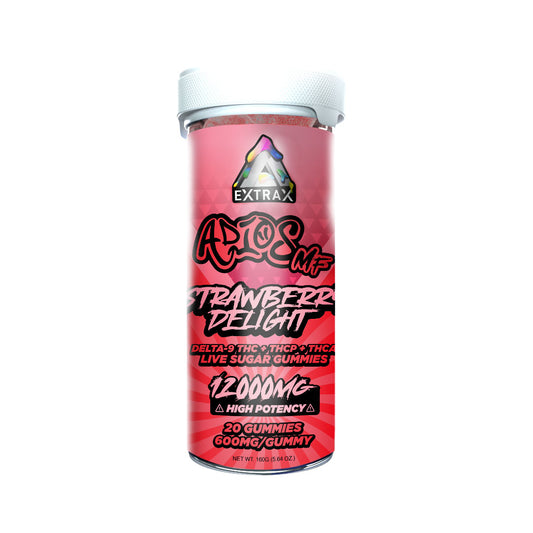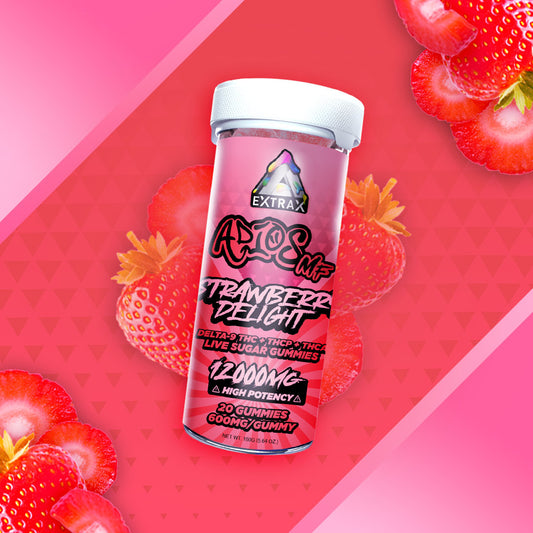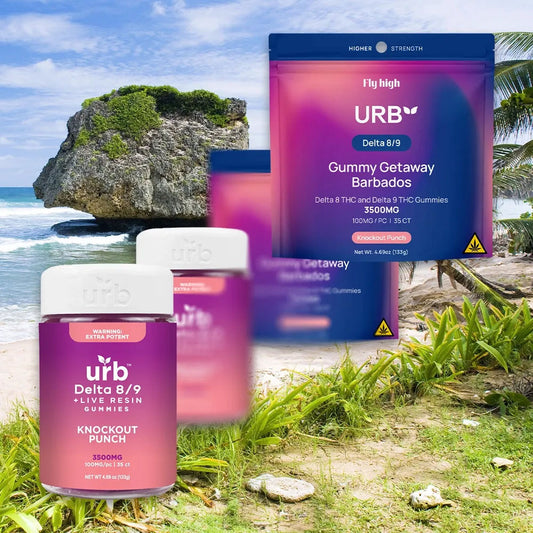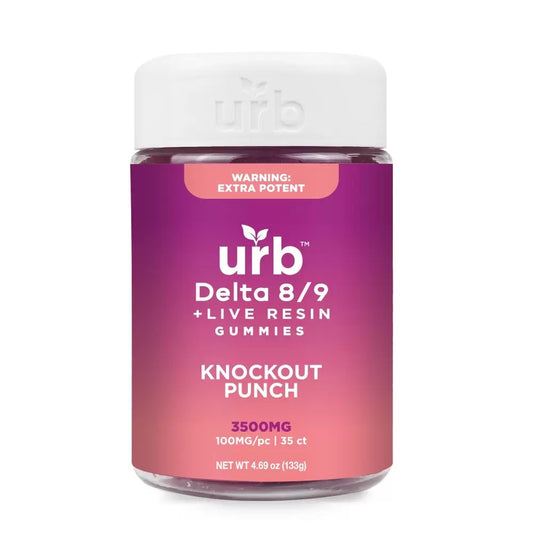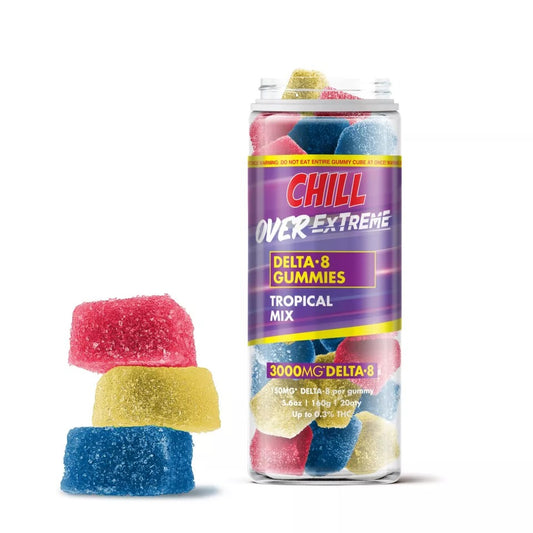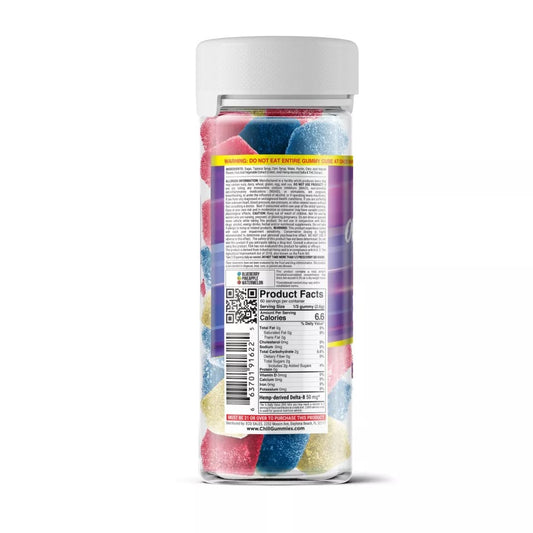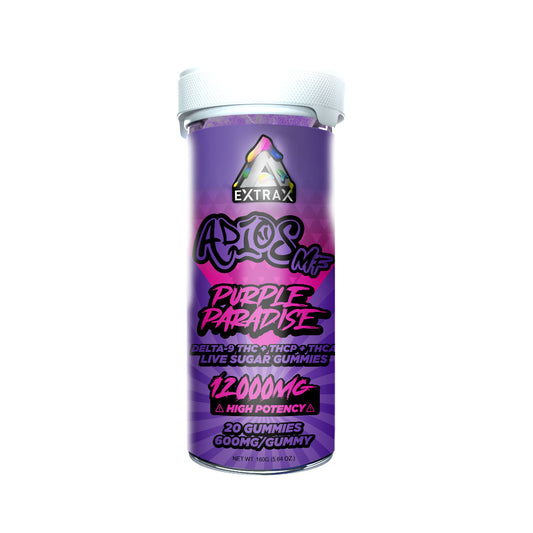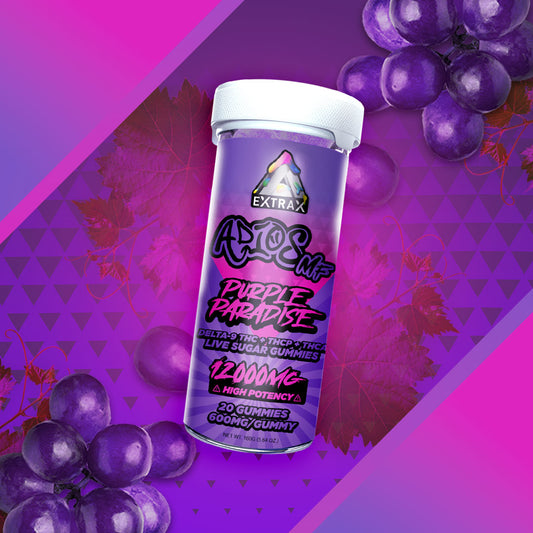
Delta 8 vs. CBD: 10 Crucial Differences for Consumers
The hemp industry has boomed in recent years, and with it, consumers are seeing an array of new cannabinoid products on the market. Two of the most popular compounds derived from hemp are CBD (cannabidiol) and Delta 8 THC. While both are hemp-based cannabinoids, they offer very different experiences for consumers. So, what’s the difference between CBD and Delta 8? Let's dive into 10 key differences that every consumer should know before deciding which is right for them.
1. Psychoactive Effects
One of the biggest differences between CBD and Delta 8 THC is their psychoactive properties. CBD is non-psychoactive, meaning it doesn't cause any sort of "high" feeling. Many consumers choose CBD for its relaxing, calming benefits without the mind-altering effects.
On the other hand, Delta 8 THC is a psychoactive compound. It produces a milder high compared to its cousin Delta 9 THC (the active ingredient in marijuana). Consumers often report feeling more relaxed, with a clear-headed high that doesn’t overwhelm like Delta 9 sometimes can. If you’re curious to try Delta 8, check out our popular Canna River Delta 8 Gummies.
2. Legal Status
The legal landscape for CBD and Delta 8 THC differs significantly. CBD is legal in most states across the U.S. as long as it contains less than 0.3% Delta 9 THC, in accordance with the 2018 Farm Bill.
Delta 8 THC, however, exists in a legal gray area. While it’s technically derived from hemp, some states have banned it due to its psychoactive effects. Always check your local laws before purchasing Delta 8 products, as legality can vary by state.
3. Extraction Methods
Both CBD and Delta 8 THC are extracted from hemp, but the processes are different. CBD is directly extracted from hemp plants in large quantities, using techniques like CO2 extraction or ethanol extraction.
Delta 8, on the other hand, is found in much smaller amounts in the hemp plant, so it’s often converted from CBD through a process called isomerization. This makes Delta 8 slightly more complex to produce, which is reflected in the price of products.
4. Usage and Consumption
When it comes to how they are consumed, CBD and Delta 8 are often offered in similar product formats: oils, tinctures, gummies, vapes, and topicals. However, CBD products are more widespread and have been around longer, making them more available in stores and online.
If you’re looking for CBD options, our store also carries a variety of delicious CBD-infused gummies.
5. Interaction with the Endocannabinoid System (ECS)
Both CBD and Delta 8 interact with the body’s endocannabinoid system (ECS), but in different ways. CBD is known for its indirect interaction with cannabinoid receptors, which is why it doesn't produce psychoactive effects. Instead, it helps to regulate your body’s balance, offering a more subtle effect that many use for everyday wellness.
Delta 8 THC, on the other hand, has a direct interaction with the CB1 receptors, primarily found in the brain. This is why it produces mild psychoactive effects, making it a popular choice for those looking for a gentle high.
6. Popularity and Availability
CBD is far more popular and widely available, thanks to its non-psychoactive nature and longer-standing presence in the market. You can find CBD products almost anywhere, from health stores to online shops.
While Delta 8 is newer, its popularity is quickly rising. It’s seen as a legal alternative to Delta 9 THC, especially in states where marijuana is still prohibited. We carry a range of Delta 8 products in our store, including fan-favorites like the Chill Extreme Delta 8 Gummies.
7. Side Effects
When it comes to side effects, both CBD and Delta 8 have a reputation for being well-tolerated by most consumers. CBD is typically associated with very minimal side effects, such as dry mouth or slight drowsiness, depending on the dose.
Delta 8 THC, being a psychoactive compound, may cause more noticeable side effects such as drowsiness, dry mouth, or red eyes. However, its effects are often described as more manageable compared to Delta 9 THC.
8. Dosage Differences
CBD and Delta 8 also differ when it comes to dosage. CBD dosage often starts with small amounts, such as 10-20mg per day, depending on what you're looking for.
For Delta 8, the dosage typically starts a bit higher—around 25mg for beginners. If you’re new to Delta 8, it’s always a good idea to start with a small amount and gradually increase to find your ideal dose. You can try a moderate-strength option like the Chill Plus 25mg Delta 8 THC Gummies Tropical Mix for a delicious introduction to Delta 8.
9. Purpose and Appeal
CBD is widely used by people seeking wellness and relaxation benefits without the high. Many enjoy incorporating CBD into their daily routine for a calming effect that doesn’t disrupt productivity or alertness.
Delta 8, on the other hand, appeals to consumers who want a mild high along with those relaxing effects. It’s perfect for unwinding after a long day without feeling too impaired.
10. Price Comparison
Generally speaking, Delta 8 products tend to be more expensive than CBD products. This is largely due to the complex extraction and conversion process required to produce Delta 8. However, the experience it offers may justify the price for those seeking that extra kick.
For a budget-friendly option, check out our Chill Plus Delta 8 Gummies. These offer a potent Delta 8 experience at a reasonable price, perfect for consumers exploring Delta 8 for the first time.
Which One is Right for You?
At the end of the day, the choice between CBD and Delta 8 THC comes down to your personal preferences and what you're looking to get out of your hemp experience. Whether you want the non-psychoactive benefits of CBD or the mellow, uplifting effects of Delta 8, both cannabinoids offer unique ways to relax, unwind, and find balance.
If you're curious about which might be best for you, browse our wide selection of CBD and Delta 8 products at Just Chill Gummies and start your journey to relaxation today!

